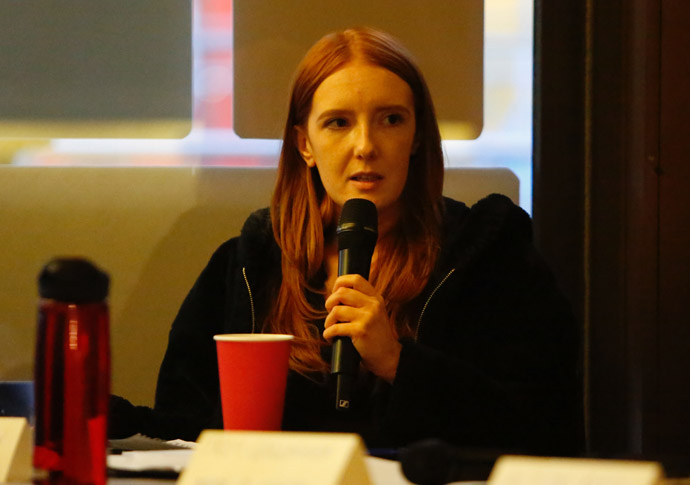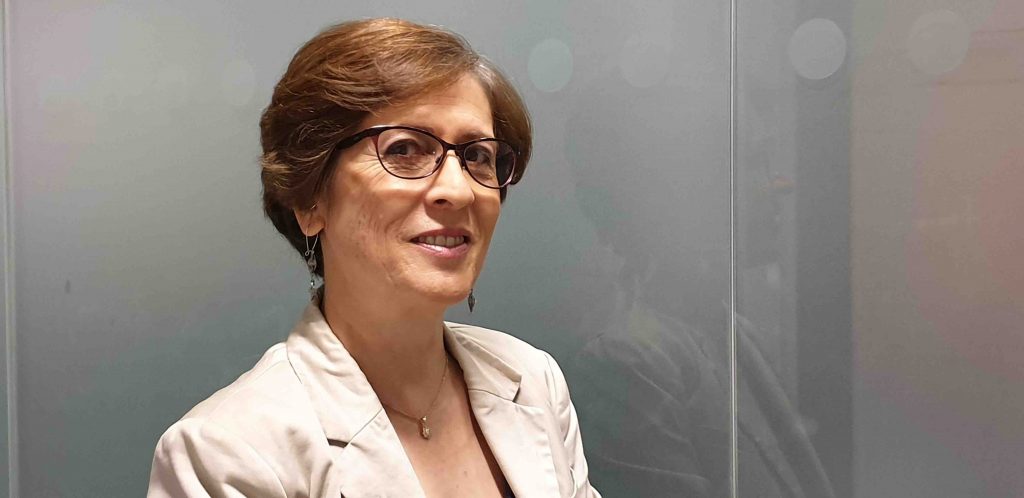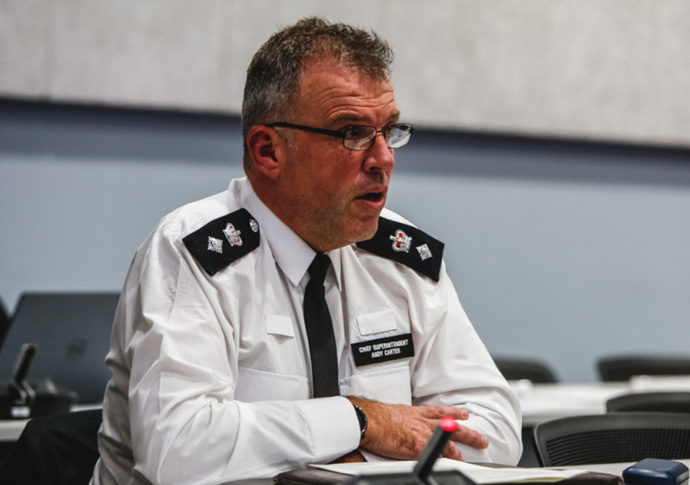Violence against women: ‘Survivors need housing’
Sarah Michael speaking at last year's VAWG conference SAFE housing must be created for survivors of domestic abuse, one of the keynote speakers at the Tribune's conference on violence against women and girls (VAWG) has warned. Sarah Michael, herself a survivor of abuse, said it was too easy for perpetrators to track down their victims even after they had tried to break free. "Women need to have a place that their abusive partner doesn't know about," she said. "When my abusive partner came out of jail he knew where I lived.
I asked the authorities, 'well, can you tell me the area he's in so I can avoid it?' And they said that because of safeguarding they couldn't. He knew where I lived, but I -couldn't know where he lived. How stupid is that?"
The Tribune held a special conference in April last year to help the search for ways to stop the violence. It followed the death of a student at City University and several high profile cases across London which led to demands for action. We were grateful to Ms Michael for joining the panel we organised at the Angel Centre, where she shared her experiences - and hopes for the future.
Education will be key, she said, adding: "We need workshops in primary schools where we can teach young children what domestic violence is, how to recognise it, and that it's wrong to be violent towards anyone." This week the Tribune has looked back to see what has happened since our conference - and what the speakers feel should happen 12 months on. We heard calls from activists to ensure migrants and women of colour are recognised in the conversation.
Patsy Stevenson, the campaigner who was famously arrested at a vigil for Sarah Everard, said: "Women's rights activism has become more mainstream in the last year. But I do think that's slightly to do with the fact that Sarah Everard was white, and with my photo going viral - I'm a white woman. "That woke a lot of -people up who wouldn't normally have spoken up about that stuff."
 Activist Patsy Stevenson says intersectionality is essential But she added: "There's no point in being a feminist activist if you're not going to be intersectional.
Activist Patsy Stevenson says intersectionality is essential But she added: "There's no point in being a feminist activist if you're not going to be intersectional.
"The main thing that anyone can do is educate themselves. That process does not stop - I fully believe that I'm anti-racist and anti-homophobic, but it still doesn't stop because there's always more to learn." Halaleh Taheri, the CEO of the Middle Eastern Women and Society Organisation (MEWSo), based at the Andover Community Centre, said: "There is latent racism against migrant women.
There might not be an official voice of it, but in the back of people's heads they're thinking, 'there are too many migrants, too many refugees, get out'."  Halaleh Taheri, CEO of MEWSo
Halaleh Taheri, CEO of MEWSo
And poverty was a barrier to hearing about resources available to help, she warned. "Unfortunately, working-class women haven't heard as much... because there are so many barriers, the time they spend at the food bank, they're queuing for hours there to get food", Ms Taheri said. "It's not easy for those women to come to training [on the Domestic Abuse Bill] and know their rights. When I ask a mother, 'Where were you for the training?' and she says 'I was waiting for the food bank,' how can I blame her?"
Rebecca Goshawk, from Solace Women's Aid in Islington, said: "For migrant women there's currently no fire-wall between the police and the home office. Women are scared of the impact of reporting to police with immigration." According to Ms Goshawk, reporting instances of VAWG to the police is difficult enough already. "When women report, they get a sense of disbelief, they have to defend their reputation, and they have to provide the evidence, and often there's no further action taken," she said.
Ms Everard's killer, Wayne Couzens, was a serving police officer at the time of her murder, while senior firearms officer David Carrick was jailed for life for a catalogue of predatory attacks on women. The recent Casey Review into policing in London led to findings that the Met was institu-tionally racist, homo-phobic and misogynistic. Borough commander Chief Superintendant Andy Carter said the police were "fully committed to addressing and tackling any officers whose standards fall below what I believe is absolutely essential in order to rebuild trust within the community".
 Borough Commander Andy Carter Council leader Kaya Comer-Schwartz said she was keenly aware of the need for safe housing. "In our housing allocation scheme, if you're a perpetrator of domestic violence, we will not move women and children out of that situation so that they lose their house again, and you get to keep a house," she said.
Borough Commander Andy Carter Council leader Kaya Comer-Schwartz said she was keenly aware of the need for safe housing. "In our housing allocation scheme, if you're a perpetrator of domestic violence, we will not move women and children out of that situation so that they lose their house again, and you get to keep a house," she said.
"I've had personal experience in my family of domestic violence. The trauma that you experience witnessing that, living through that, seeing people that you love living through that, is very detrimental. "After a hard day's work in the outside world you should be able to close that front door and breathe."
She suggested posting independent domestic abuse advocates (IDVAs) at food banks to tackle this hurdle raised by Ms Taheri. The Tribune also heard about the importance of prevention. Councillor John Woolf, Islington's executive member for community safety, said: "This has been seen as a women's issue, and it's emphatically not, it's a men's issue as well.
We've established Journey to Change, which provides one-to-one intervention with perpetrators of domestic abuse.
We monitor it, and we've had about an 80 per cent reduction in physical violence with perpetrators going with that service."
If you are experiencing violence or domestic abuse, please visit https://www.islington. gov.uk/community-safety/ violence-against-woman-and-girls